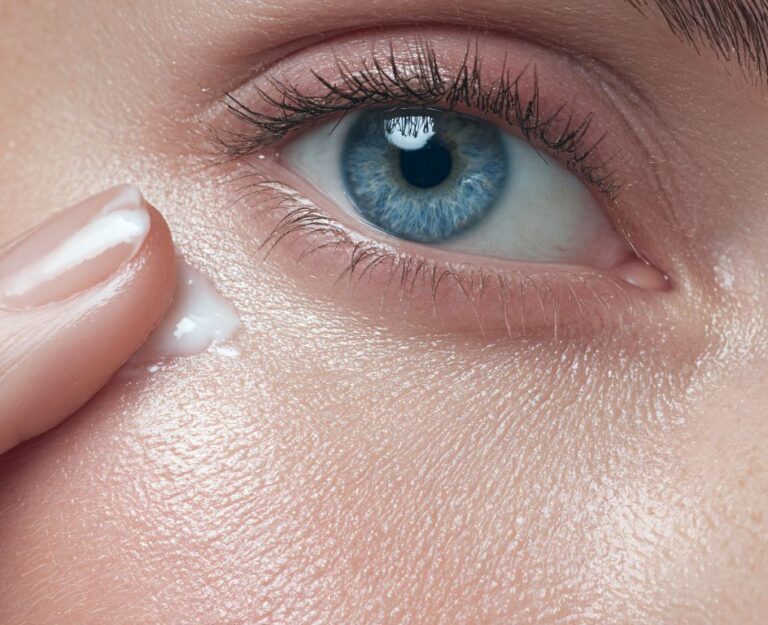In this age of widespread access to information, many myths have grown up around laser hair removal. One of the most common and worrying is the question, is laser hair removal carcinogenic? Understandably, health concerns are a priority. At Wellclinic, we aim to dispel any doubts and provide reliable information, based on medical knowledge and the latest scientific research, confirming the safety of laser hair removal.
IPL rays and cancer - safety of laser epilation treatments
Light emitted by depilatory lasers, including IPL rays, are specially targeted electromagnetic waves, and their laser radiation concerns only the thermal effect on melanin in the hair, without the ability to ionise cells or damage DNA, which guarantees the high safety of laser hair removal, as it does not penetrate deeper than the level of the hair follicle.
Laser hair removal and cancer - health effects of laser hair removal
Can laser hair removal cause cancer? According to current medical knowledge and numerous research over laser hair removal, there is no evidence of a link between laser treatments and the development of skin cancer. The laser works selectively, focusing on the hair pigment. Effect of the laser on the skin involves thermal damage to the hair follicle and does not affect the healthy skin cells around it. Is radiation during laser hair removal dangerous? No, in terms of cancer risk, it is considered safe.
Epilation methods and the risk of disease - cancer risk epilation
When we analyse epilation methods, laser hair removal compares favourably. The absence of cancer risk is one of its main advantages. In addition, it is often recommended by dermatology experts as an alternative to mechanical methods (e.g. shaving, waxing), which can lead to irritation, folliculitis or ingrown hairs.
Modern hair removal - safety
Modern hair removal is the cornerstone of our work. At Wellclinic, we only use certified medical devices that meet strict safety standards. They are regularly serviced and calibrated to ensure precise and controlled light emission. Is laser hair removal safe for the skin? Yes, when it is performed by an experienced and properly trained specialist who can select the laser parameters to suit your skin phototype and hair colour, minimising the risk of adverse reactions.
Research - laser epilation
Licensed dermatologists in their opinions o laser depilation are unequivocal in recognising this method as effective and safe. On the basis of a long-term study, they analysed long-term effects of depilation, finding no association with skin cancer. Here are the conclusions of these analyses:
- Lasers used for depilation emit light in the infrared or red spectrum, which is absorbed by melanin and does not have sufficient energy to ionise atoms in human body cells, which is necessary to induce DNA mutation.
- Melanoma and hair removal - Hair removal lasers are not associated with the development of melanoma or other skin cancers. Moreover, in some cases, laser hair removal can facilitate early detection of pigmented lesions, as the absence of hair makes it easier to check nevi regularly.
- It is believed that myth o laser depilation and its carcinogenicity stems from confusing laser radiation with UV radiation, which is actually harmful.
Wellclinic expert opinion
"I am often asked about the alleged harmfulness of laser hair removal and its link to cancer. As a dermatologist with many years of experience, I can state with full conviction: this is a myth. The lasers we use at Wellclinic are medically certified and only work on the hair pigment, i.e. melanin. Their energy is too low to damage the DNA of skin cells, which is a prerequisite for the formation of cancer. UV radiation, from the sun or tanning beds, is a completely different story - and it is this that is the risk factor for skin cancer. Laser hair removal, carried out by a qualified professional, is a safe and effective treatment that allows you to enjoy smooth skin without health concerns. What's more, with hair removal, it is easier to monitor the condition of the marks on the skin, which promotes early detection of any worrying changes. We, as a Medical Team, always focus on educating and dispelling any doubts our patients may have, so they can make informed and safe decisions about their appearance and health."
Alternatives to light epilation
There are many alternatives to light epilation, such as shaving, waxing, mechanical depilatories or hair removal creams. Although they offer temporary hair removal, they are often associated with irritation, ingrown hairs and the effect is short-lived. None of these methods offer the permanent hair reduction that laser hair removal provides.
Laser hair removal - side effects of epilation treatments
Does laser hair removal have side effects? Like any medical procedure, it may involve some reactions. Side effects are usually mild and transient. The most commonly observed side effects of depilatory laser it:
- Redness and swelling of the skin at the treatment site, usually disappearing within a few hours
- Transient burning or itching sensation
- Less frequently - fine blisters, scabs, transient pigmentation changes (lightening or darkening of the skin), which usually resolve spontaneously.
Can laser hair removal cause skin changes? It can cause temporary changes in skin pigmentation or texture, but these are not pathological or cancerous. They resolve spontaneously.
Laser hair removal - contraindications
What are the contraindications to laser hair removal? Although the procedure is safe, there are certain conditions that preclude it from being performed to ensure your safety of laser hair removal. Contraindications to laser epilation:
- Pregnancy and breastfeeding
- Cancer
- Taking photosensitising medication (e.g. certain antibiotics, oral retinoids)
- Active viral (e.g. herpes), bacterial or fungal infections in the treatment area
- A fresh tan
- Autoimmune diseases (e.g. lupus)
- Epilepsy
- Fresh surgical procedures in the area.
Laser radiation and health
Concern about laser hair removal is a common but unfounded worry. Safety of laser hair removal is widely confirmed by numerous scientific studies and dermatology experts on hair removal all over the world. By choosing Wellclinic, you are opting for treatments performed with the utmost care, using modern, certified equipment and by a Medical Team that puts your health and comfort first.
Don't let myths stop you from achieving smooth skin. Come for a consultation at Wellclinic Medical Clinic - discover the benefits of safe and effective laser hair removal!
FAQ
Is laser hair removal harmful?
Harmfulness of laser hair removal is zero when performed according to procedures and by qualified personnel, using certified equipment.
Is laser hair removal safe during pregnancy?
No, for safety reasons and lack of sufficient studies on pregnant women, the procedure is contraindicated.
How often can laser hair removal be performed?
The frequency of treatments is determined on an individual basis, usually every 4-8 weeks, depending on the body area and hair growth phase. These intervals allow for maximum efficacy and safety.
Is laser hair removal painful?
Pain sensations are subjective and depend on the pain threshold. Modern lasers are equipped with cooling systems that minimise discomfort, making the treatment usually well tolerated.
Does laser hair removal affect moles? / Is laser hair removal safe for nevi?
Lasers are not used directly on moles, pigmented moles or tattoos. These areas are usually avoided or protected to prevent irritation or alteration. We always assess the condition of the skin and the presence of nevi before treatment.





